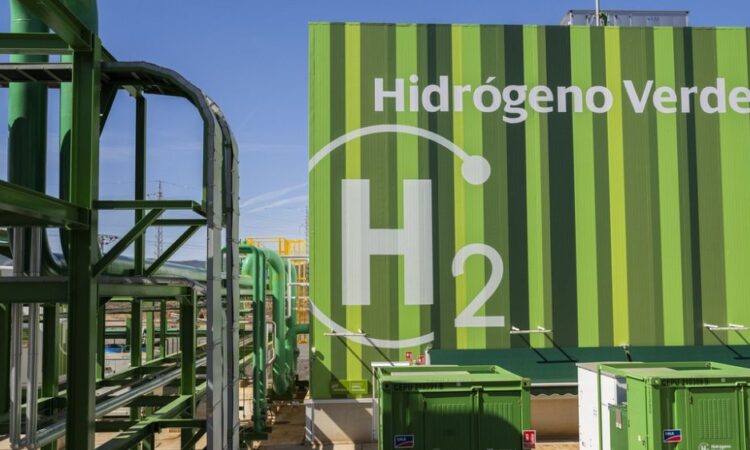
The European Commission will inaugurate this week its much anticipated Hydrogen Bank in order to support the increase of renewable hydrogen in the EU’s energy mix.
The idea is to make €800 million available from European funds to help the industry and at the same time, incentivise private investment.
Green hydrogen is expected to play a key role in decarbonising the EU so that it can achieve its emission reduction goals by 2050.
“We would like clearly to demonstrate that we are the global leader if it comes to the use of these new technologies,” Commission Executive Vice President, Maroš Šefčovič, said in an interview on Monday.
“(And) That we can indeed replace fossil fuels with green hydrogen, that we can produce steel with very low or no carbon footprint and actually that we can also have cars, buses, trains, even planes and ships visually powered by green hydrogen, which is not polluting.”
In 2022, hydrogen accounted for less than 2% of the bloc’s energy consumption and was primarily used to produce chemical products, such as plastics and fertilisers.
The priority for the EU is to develop renewable hydrogen and it aims to produce 10 million tonnes and import another ten million by 2030.
During the bloc’s Hydrogen Week in Brussels, which started on Monday, the sector will try to join the dots between the European Commission, policymakers, researchers, and industry.
“The energy crisis that Europe has faced so far, especially due to Russia’s invasion of Ukraine, has shown how dependent we are. Hydrogen can be produced in Europe, mainly in countries that have a lot of wind and a lot of solar,” Jorgo Chatzimarkakis, CEO of Hydrogen Europe, told Euronews.
“So, Spain or Ireland or Denmark are perfect countries for the production of hydrogen.
“But to be honest, we also need to import hydrogen and that’s why we are super happy to welcome here South Africa, Brazil, Saudi Arabia.”
There is still work to be done on infrastructure and investment, but some projects are already underway.
Among others, Germany has asked the UK to consider the construction of a 400-mile hydrogen pipeline under the North Sea and an underwater pipeline to carry green hydrogen is being prepared between Spain and France.





